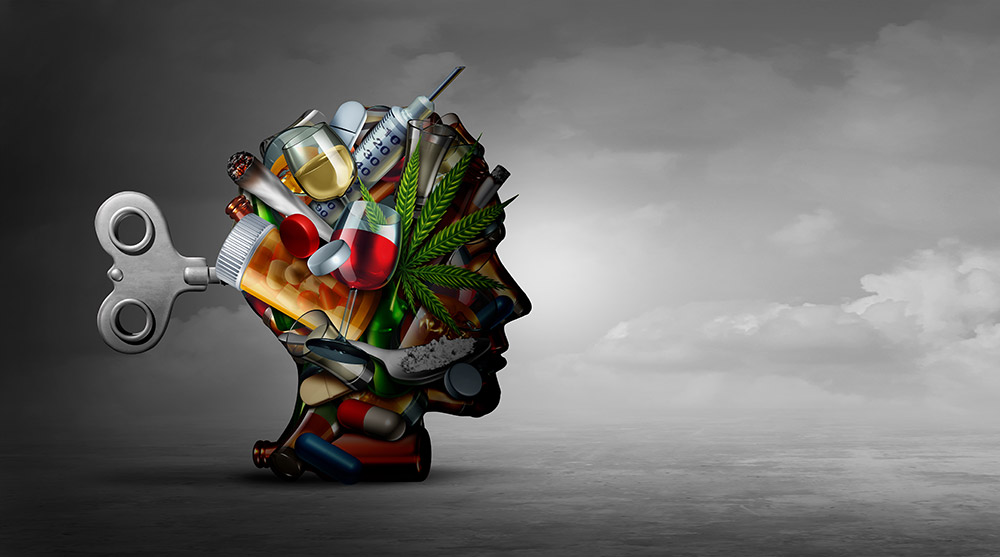Morphine Addiction & Abuse
Morphine is a strong painkiller and is used to treat severe pain, as part of the opioid family of medications, morphine is regulated and only available on prescription. Unfortunately, long-term use is linked to a tolerance buildup towards and dependency on Morphine, occasionally this can lead to addiction.
This article will explain how the use of morphine can develop into abuse or even addiction.
What is Morphine Addiction?
Morphine addiction can happen to anyone, even when following medical guidance, if you find yourself or notice a loved one exhibiting the following symptoms, addiction to morphine may have already taken effect:
- Craving morphine, even if it is causing adverse effects on overall health
- Needing higher dosage, or the additional use of other pain-relief medicines
- Taking morphine for reasons other than pain relief
- Experiencing withdrawal side effects when morphine use is stopped suddenly
Seeking treatment is possible at any point in a morphine addiction journey, please reach out to our team for advice and support on 0800 955 0945

Morphine Addiction VS. Abuse
Substance abuse and Substance Use Disorder though closely related, have key differences:
Abusing morphine, though still a cause for concern, is not the same as being addicted to morphine. Abuse is more in line with overusing morphine or using it in a manner other than prescribed or even at higher dosages than recommended. Morphine abuse may show the following behaviour signs in a loved one or yourself:
- Neglecting responsibilities
- Irritability and moodiness between doses
- Isolating from family and friends
Morphine addiction is more severe than abuse and is difficult to control, as a chronic disease if you suffer from morphine addiction you will feel compelled to keep using morphine despite any negative impact on your life. Other symptoms of morphine addiction are:
- Heightened tolerance to morphine
- Changes in your hygiene, appearance, and behaviour
- Inability to stop despite an intense want to.
- Constantly trying to find a source for morphine supply and thinking about how to get it, and when your next ‘hit’ will be.
- Needing to borrow or steal money to afford more morphine.
(Diagnosis, identification and risk populations)
Whilst there are differences between morphine abuse and morphine addiction, it is worth remembering that while abuse can exist without addiction, it often leads to addiction, so if you are concerned that you or a loved one are abusing morphine, seeking help before dependence and addiction occur is important.
How Morphine Addiction Develops
Morphine, like other opioids, interacts with receptors in your nerve cells, so in addition to pain relief feelings of euphoria may be produced (Opioids) along with a reduction in anxiety and stress. (Morphine: strong painkiller to treat severe pain) Self-medicating whilst having a predisposition to addiction or while suffering from a mental health issue can increase the risk of dependence or addiction to morphine developing.
Other factors come into play and you may have a combination of risk factors that have led you to develop a morphine addiction.
Trauma & Pre-existing Mental Health Conditions
Trauma during childhood, sexual abuse or assault, loss, and grief, as well as mental health issues such as depression, anxiety, PTSD, can contribute to addiction formation and may even be undiagnosed at the time of seeking addiction treatment. A dual diagnosis means there is an existing mental health issue contributing to your need for morphine or could develop as a result of the morphine dependency. (2. DRUG STATISTICS AND TRENDS pg6 )
Repeat Exposure
Dependency grows from repeated exposure to morphine, you can not develop a dependency on a medication that is hard to access so while developing a substance use disorder is never intentional, often a prescription medication addiction forms due to the ease of access you may have through your doctors and healthcare providers.
A Family History of Drug Use
Genetics has a large part to play in addiction development but is not a guarantee of addiction, Many studies have shown that while genetics does contribute, adding factors like poverty, social exclusion and problem drug use in your environment can cause dopamine system dysfunction and risk-taking behaviours. (2. DRUG STATISTICS AND TRENDS pg6 )
If you have been exposed to drug use by family members or primary caregivers during your childhood, you may have experienced:
- Abuse or neglect
- Sexual abuse
- Lived in poverty as a result of drug use
- The use of drugs as ‘normalised’ and experimented using the available drugs or medications in imitation of what your loved ones are doing
(5 Risk Factors for Opioid Addiction – Prescription)
Enter your phone number below and one of our qualified addiction specialists will get in touch to discuss your options.

Signs & Symptoms of Morphine Addiction
Whilst morphine addiction may seem less pronounced than other more potent opioids there are some typical symptoms you can look out for in yourself or a loved one:
Short-term:
- Nausea,
- dilated pupils,
- slowed breathing,
- sleepiness or lethargy,
- sweats and chills
Long-term:
- Depression,
- severe constipation,
- erratic sleep cycles,
- body tremors,
- Kidney issues
Behavioural:
- Withdrawal from loved ones and activities,
- suddenly lying and stealing,
- neglecting daily responsibilities at work or home,
- highly irritated or aggressive
(Why Is Morphine Addictive?)
Diagnosing Morphine Addiction
Many substance use disorders are diagnosed using the DAST-10 questionnaire (Policy for alcohol referral pathway/clarify services between CAT & DAS services) which is a screening tool used by health care practitioners to assess the extent of your dependence or if addiction is evident
You will be asked the following questions:
- What substance(s) are you using? Including other drugs or medications
- In what quantities?
- How frequently?
- By what route (smoking, injecting, swallowing)?
- How long have you been using for?
- Do you recognise this use as problematic?
In cases where withdrawal seems to be occurring, your doctor may choose to use The Clinical Opiate Withdrawal Scale (COWS) (Clinical Opiate Withdrawl Scale) to determine the severity of your withdrawal and physical dependence on morphine.
Once your morphine use disorder is diagnosed, you will be provided with options on how to receive treatment whether through detox and rehab in a private residential treatment facility, the NHS or at home.

The Dangers of Morphine Addiction
Morphine addiction can take over your life, to the detriment of all else. You may find yourself unable to work, enjoy family time or participate in activities that used to bring you joy. Along with the social risk, suffering from a morphine addiction has some serious health implications:
- Breathing difficulties – slowed breathing patterns
- Seizures
- Urinary problems
- Constipation
- Increased risk of Hepatitis-C, HIV-AIDS and STDs
(Morphine Effects | Short Term, Long Term & Side Effects)
Morphine Use in Teens
Your teenage years are a unique developmental time that may have been associated with increased risk-taking and drug experimentation. Unfortunately, drug exposure during adolescence increases the risk of dependency in adults. (Adolescent Morphine Exposure Affects Long-Term Microglial Function and Later-Life Relapse Liability in a Model of Addiction)
Morphine Use in Pregnancy
Morphine use in pregnancy may cause withdrawal in newborns or Neonatal Abstinence Syndrome at birth (patient information)
Mixing Morphine with Other Drugs
Most medications come with a warning to not mix with other medical substances, illicit drugs and especially alcohol, morphine and alcohol when taken together can increase the effects of alcohol intoxication as well as lead to shallow breathing, dizziness, confusion, low blood pressure and, in more severe overdoses, cardiac arrest, circulatory system collapse and coma. (Concurrent Alcohol and Morphine Abuse)
Medical intervention may be required to prevent or treat an overdose.
Morphine Use and Employment
Once entrenched, Morphine addiction can have a large and far-reaching impact, characterised by relapse and remission. Unfortunately, this causes a decline in employment, putting families in distress and children at risk of neglect. (An Independent Review into the impact on employment outcomes of drug or alcohol addiction, and obesity. CM9336 – November 2016)

Getting Help for Morphine Addiction
Don’t be afraid to seek help from a friend, family member or anyone else if you are worried that you may be suffering from morphine dependence or addiction – they could help you get your life back.
Private residential rehabilitation is beneficial to the treatment of morphine addiction, private facilities can provide medical supervision where your unique needs are taken into consideration and includes a combination of medical care, psychiatric services, counselling, behavioural therapy (CBT), vocational training, and other services to best support the whole of you throughout recovery.
Participating in other twelve-step groups like Narcotics Anonymous (Nar-Anon UK |12 Step Programme), or non-twelve-step recovery programs such as SMART Recovery. (Self-Help Addiction Recovery | UK Smart Recovery) can prove beneficial for your long-term recovery
The NHS (NHS Drug addiction: getting help) also offers outpatient care and information for stopping morphine (Reducing and stopping opioids) for the treatment of addiction. Unfortunately, any NHS treatment programme may have a long waiting list and you may not receive the individualised care your addiction requires
If you require urgent admission, contact us and we will help you find the right private treatment centre for your needs.
